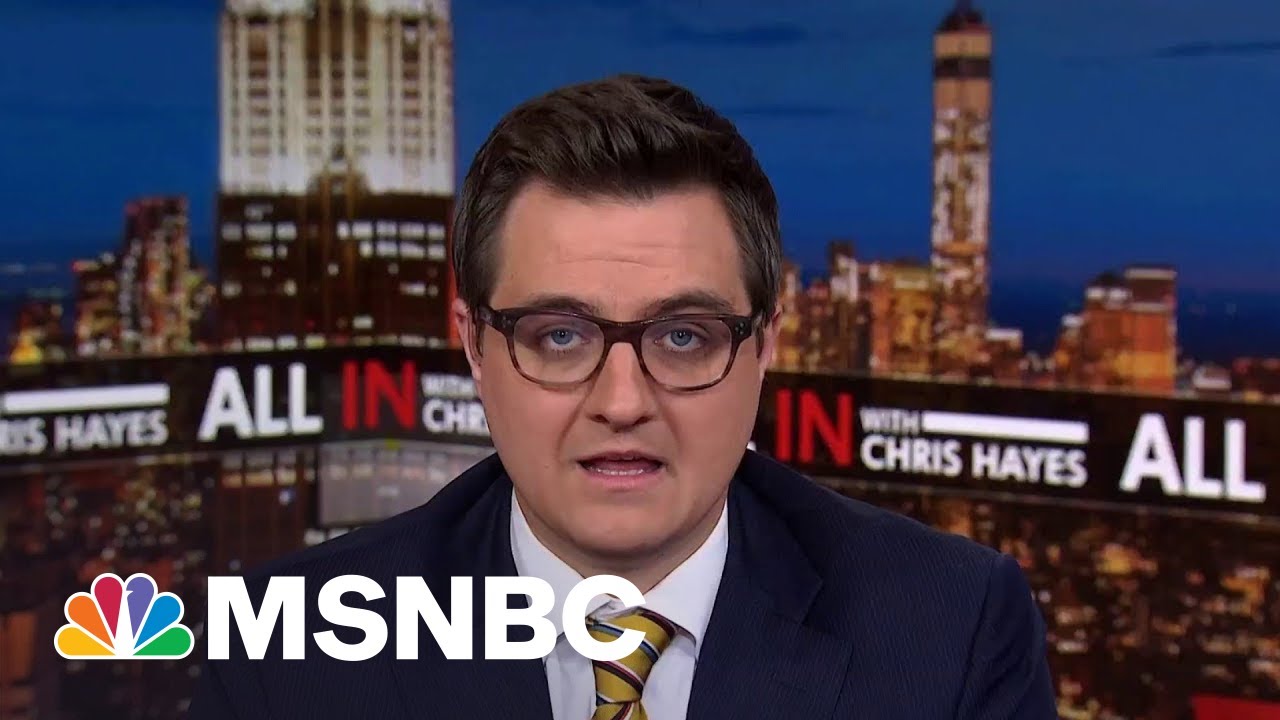Watch All In With Chris Hayes Highlights: March 8
Unleash Your Creative Genius with MuseMind: Your AI-Powered Content Creation Copilot. Try now! 🚀
In the realm of media, there exists a striking asymmetry between traditional outlets that prioritize accuracy and conservative media outlets like Fox News that tend to cater to the desires of their audience. This was exemplified by the recent controversy surrounding Sidney Powell, a lawyer who made outlandish claims about the 2020 election.
Tucker Carlson of Fox News, known for his outspoken and often controversial views, questioned Powell's credibility. This move generated significant backlash from Carlson's viewers, highlighting the discord between conservative media outlets and their audience when it comes to embracing accuracy and responsible reporting.
While traditional media outlets place a high value on accuracy and fact-checking, conservative media outlets often prioritize propagating narratives that align with their audience's beliefs and opinions. This asymmetry can be observed not only in the portrayal of events but also in the reception of reputable news sources.
Surprisingly, private conversations among Fox News producers revealed that they recognized the trustworthiness of outlets such as NBC News and The New York Times, despite publicly criticizing them. This disparity underscores the lack of credible conservative journalism institutions that can compete with their traditional counterparts.
The Lack of Credible Conservative Journalism Institutions
Tucker Carlson's failed attempt to create a conservative answer to The New York Times with his website, The Daily Caller, further exposes the dearth of credible conservative journalism institutions. While The Daily Caller aims to present an alternative perspective to mainstream media, it often falls short in terms of factual reporting and rigorous journalism standards.
The audience's negative reaction to Carlson's suggestion that accurate news should be valued sheds light on the prevalent preference for opinion-driven reporting within certain demographics. This demonstrates the existence of an epistemic divide in the country, with many people immersing themselves in a media environment that prioritizes confirmation bias over factual reporting.
The Consequences of Catering to Confirmation Bias
The consequences of catering to confirmation bias are far-reaching and impactful. When media outlets prioritize pleasing their audience over the truth, it undermines the public's ability to form informed opinions and engage in constructive dialogue. This can lead to the perpetuation of false narratives and the erosion of trust in the media as a whole.
The consequences become even more severe when false information is spread on a large scale. The Dominion lawsuit documents, which shed light on the deliberate spread of misinformation by Fox News, highlight the dangerous impact of such media outlets. This type of reporting can have serious consequences, as we saw with the violent transition of power on January 6th during the Capitol attack.
Holding Media Organizations Accountable
The revelations from the Dominion lawsuit documents underscore the importance of holding media organizations accountable for their actions. Media outlets, especially those with significant influence over public opinion, have a responsibility to prioritize accuracy, responsible journalism, and ethical reporting.
The power and influence wielded by media organizations cannot be overstated. They have the ability to shape public opinion and political discourse, making it imperative that they act in the best interest of the public rather than succumbing to the pressures of ratings and pleasing their audience.
As the Dominion lawsuit continues and more information comes to light, it is crucial that the public remains vigilant and demands accountability from media organizations. The repercussions of allowing misinformation to go unchecked can be detrimental to democracy and the well-being of society as a whole.
In conclusion, the asymmetry between traditional and conservative media outlets, as exemplified by the Sidney Powell controversy and Tucker Carlson's failed attempt to create a credible conservative journalism institution, highlights the epistemic divide in the country. This divide, fueled by confirmation bias and the preference for opinion-driven reporting, has significant consequences for public discourse and the dissemination of accurate information. It is vital that media organizations are held accountable for their actions and prioritize responsible journalism to ensure a well-informed citizenry.

Related Recaps
- FM KLA’S // INVITÉS : LE GROUPE EKI-LIB & THEGENUS MOÏSE // PRÉSENTATION: JUSTIN JOCE // Livestream
- [TẬP 1194] Chuyện Ma Có Thật : ĐÊM KINH HOÀNG Ở NHÀ TRỌ THỦ ĐỨC
- We went on vacation || My 19 dairies S1: Ep3
- ♓ Pisces 🐟 Cheating Led to Insanity: Karma Strikes Back in the Rebound! /EXTENDED LINK BELOW
- CARVAJAL CRAVA VINI JR MELHOR DO MUNDO: "TÁ MOSTRANDO ISSO NO DIA A DIA" | ENTREVISTA EXCLUSIVA